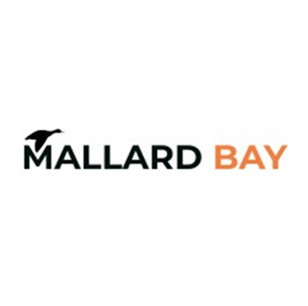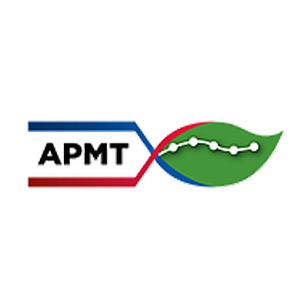Securities Law Issues When Raising Money Through An SPV or RUV
Disclaimer: This post discusses general legal issues, but it does not constitute legal advice in any respect. This post is not a substitute for legal advice and is intended to generate discussion of various issues. No reader should act or refrain from acting on the basis of any information presented herein without seeking the advice of counsel. Cara Stone, LLP and the author expressly disclaim all liability with respect to any actions taken or not taken based on any content of this post. The views expressed herein are personal opinion.
There are several securities law issues that SPV and RUV managers should be aware of before conducting an offering.
First, the SPV or RUV is raising money, which means that it is conducting an offering. Usually, there’s an underlying offering the SPV or RUV wants to participate in, but the SPV or RUV is also raising money. Anytime an entity is raising money from people and doing so with equity securities like membership interest in an LLC or a partnership, it is generally conducting a securities offering. This means the offering must be exempt from public securities offerings laws.
Usually, SPVs and RUVs use Regulation D under the Uniform Securities Act. Specifically, they will often rely on Rule 506b. Under 506b, SPVs and RUVs will want to limit their offering to accredited investors. If an SPV or RUV takes any non-accredited investors, they must provide those non-accredited investors with certain types of required disclosures and financial statements. The company may even need an audit. Additionally, the SPV or RUV would only be able to accept a maximum of 35 non-accredited investors. For these reasons, SPVs and RUVs tend to avoid non-accredited investors.
SPVs and RUVs also have a duty to disclose all material facts about the vehicle and the underlying transaction. If the SPV’s purpose is to invest in a tech company or real estate deal, for instance, the SPV must share any due diligence it has done with the investors. The SPV or RUV should also communicate to investors that they can ask questions and gather more information about the deal. Because there is a lot of risk that people can lose their own money, the SPV or RUV must comply with the anti-fraud rules of the Securities Act, which provide that a company raising money must disclose all relevant materials, and no relevant materials can be omitted.
Additionally, SPVs and RUVs should avoid “General Solicitation”. In broad terms, general solicitation occurs when a company raises money through publicity, general announcements, media, or other public channels. To raise funds through a general solicitation, the SPV or RUV must provide detailed disclosures and take reasonable steps to verify that investors are accredited.
In general, SPVs and RUVs are private offering deals where people are going to people with whom they have a substantive pre-existing relationship (they’ve known them for a long time or have done business together). The manager of the SPV or RUV should qualify each investor using tools like an accredited investor questionnaire, and they’ve had them sign investment agreements or subscription agreements acknowledging the risk inherent in this type of deal. The SPV or RUV should take reasonable steps to verify that the investors are aware of the risks inherent in investing and sophisticated enough to enter into this type of agreement.
This post summarizes the primary security issues at play for SPVs and RUVs but does not cover all issues that may arise. Another common securities issue related to SPVs and RUVs involves how the vehicle can pay the manager or organizer a management service fee. We discuss this issue here.
Check out our other posts about raising money through an SPV, and reach out to us with any questions.
Disclaimer: This post discusses general legal issues, but it does not constitute legal advice in any respect. This post is not a substitute for legal advice and is intended to generate discussion of various issues. No reader should act or refrain from acting on the basis of any information presented herein without seeking the advice of counsel. Cara Stone, LLP and the author expressly disclaim all liability with respect to any actions taken or not taken based on any content of this post. The views expressed herein are personal opinion.
There are several securities law issues that SPV and RUV managers should be aware of before conducting an offering.
First, the SPV or RUV is raising money, which means that it is conducting an offering. Usually, there’s an underlying offering the SPV or RUV wants to participate in, but the SPV or RUV is also raising money. Anytime an entity is raising money from people and doing so with equity securities like membership interest in an LLC or a partnership, it is generally conducting a securities offering. This means the offering must be exempt from public securities offerings laws.
Usually, SPVs and RUVs use Regulation D under the Uniform Securities Act. Specifically, they will often rely on Rule 506b. Under 506b, SPVs and RUVs will want to limit their offering to accredited investors. If an SPV or RUV takes any non-accredited investors, they must provide those non-accredited investors with certain types of required disclosures and financial statements. The company may even need an audit. Additionally, the SPV or RUV would only be able to accept a maximum of 35 non-accredited investors. For these reasons, SPVs and RUVs tend to avoid non-accredited investors.
SPVs and RUVs also have a duty to disclose all material facts about the vehicle and the underlying transaction. If the SPV’s purpose is to invest in a tech company or real estate deal, for instance, the SPV must share any due diligence it has done with the investors. The SPV or RUV should also communicate to investors that they can ask questions and gather more information about the deal. Because there is a lot of risk that people can lose their own money, the SPV or RUV must comply with the anti-fraud rules of the Securities Act, which provide that a company raising money must disclose all relevant materials, and no relevant materials can be omitted.
Additionally, SPVs and RUVs should avoid “General Solicitation”. In broad terms, general solicitation occurs when a company raises money through publicity, general announcements, media, or other public channels. To raise funds through a general solicitation, the SPV or RUV must provide detailed disclosures and take reasonable steps to verify that investors are accredited.
In general, SPVs and RUVs are private offering deals where people are going to people with whom they have a substantive pre-existing relationship (they’ve known them for a long time or have done business together). The manager of the SPV or RUV should qualify each investor using tools like an accredited investor questionnaire, and they’ve had them sign investment agreements or subscription agreements acknowledging the risk inherent in this type of deal. The SPV or RUV should take reasonable steps to verify that the investors are aware of the risks inherent in investing and sophisticated enough to enter into this type of agreement.
This post summarizes the primary security issues at play for SPVs and RUVs but does not cover all issues that may arise. Another common securities issue related to SPVs and RUVs involves how the vehicle can pay the manager or organizer a management service fee. We discuss this issue here.
Check out our other posts about raising money through an SPV, and reach out to us with any questions.
























